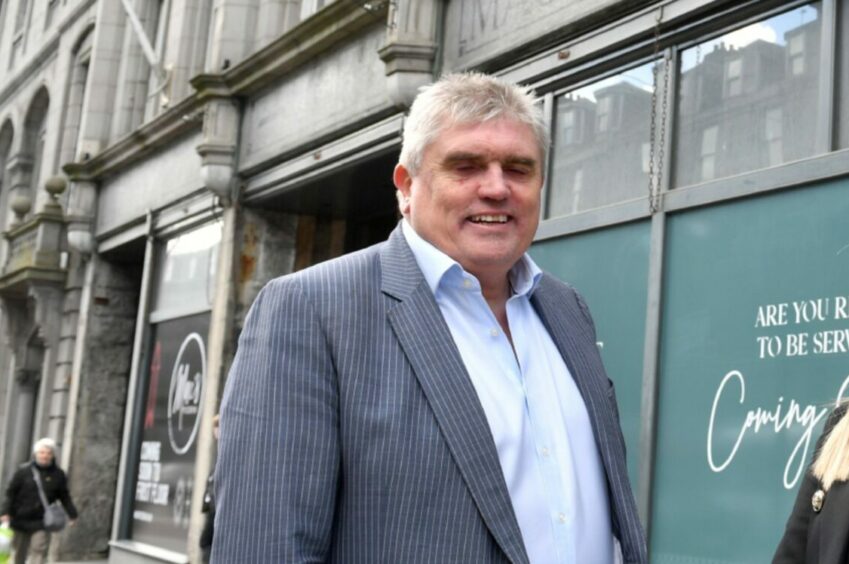The owner of Aberdeen’s McGinty Group says the hospitality industry has been “absolutely shafted” by a business rates relief unveiled in the Scottish budget that “means absolutely nothing”.
Allan Henderson told The Press and Journal he was “absolutely dejected” by Wednesday’s budget announcement on non domestic rates relief, which he warned would be followed by swathes of pubs and restaurants having to close after Christmas.
The hospitality chief runs 10 food and drink businesses across the north-east, including The Grill on Union Street and Ferryhill House hotel.
Finance secretary Shona Robison unveiled measures in the budget she said would help the country’s beleaguered hospitality industry.
This includes a 40% cut in non domestic rates for hospitality businesses from April 2025.
It is available to businesses with a rateable value of up to £51,000.
But Mr Henderson notes only one of his 10 pubs, hotels and restaurants qualifies for this relief.
Hospitality ‘absolutely shafted’
Allan said: “I think hospitality business has been absolutely shafted with this announcement.
“The detail behind it all is far different from what has been announced. This 40% relief is only available for businesses of a rateable value up to £51,000.
“I have 10 businesses within the McGinty’s Group, and we have only one pub which will qualify. There are nine other businesses within the group that do not.
“So the businesses that are bigger in size, and successful, are getting absolutely no relief whatsoever.
“It is a real kick in the teeth to most medium-sized plus businesses in the hospitality industry.
“I know from so many people in the industry, that our average rateable value is about £66,000, so this is not even close.
“The relief will be, for us, a relief of around £4,000. So across the 10 businesses that is around £400 — which is absolutely nothing.
“And what it goes to show is the Scottish Government is not listening to the people who are driving economic growth.
“I think the business community are getting fed up paying more and more tax, for higher pay awards to public sector employees.
“What this will do, coupled with the increase to employer national insurance contributions, will mean many hospitality businesses will collect their Christmas takings and then close the doors and put the keys back in January.
“It’s not a sticking plaster, it is an embarrassment. I have sat with Shona Robison and Kate Forbes, explaining the need to pass on the help that English hospitality businesses have, because last year there were twice the number of liquidations in Scotland than in England in hospitality because of the rates relief they have there.
“If I had even 40% rates relief across my businesses, it would be £135,000 and what is it? £4,000.
“So our English counterparts will get that. And I am sitting here absolutely dejected. It means absolutely nothing to us.”
‘Drop in the ocean’
Industry body the Scottish Hospitality Group added the relief was “a drop in the ocean” compared to the rising costs faced by members.
Director Stephen Montgomery said: “While we welcome the Scottish Government’s offer of 40% rates relief for a part of the industry, it is on a significantly more restricted basis than elsewhere in the UK and affords those above a rateable value of £51,000 absolutely nothing for a fourth year in a row — at a time when all licensed hospitality businesses need support.
“The reality is that this amounts to little more than a drop in the ocean given the spiralling costs faced by bars, restaurants, and hotels across Scotland.
“As a sector that contributes more than £6 billion to Scotland’s economy every year and a further £3bn through the supply chain – as well as one in ten of its jobs – any closures and cutbacks by hospitality businesses will be felt in every community, which is why government support is more vital than ever.
“Moving forward, the Scottish Government must now commit to scrapping the punitive businesses rates system completely, and to work closely with Scotland’s hospitality industry to introduce a fairer replacement ahead of revaluations in 2026.”



Conversation